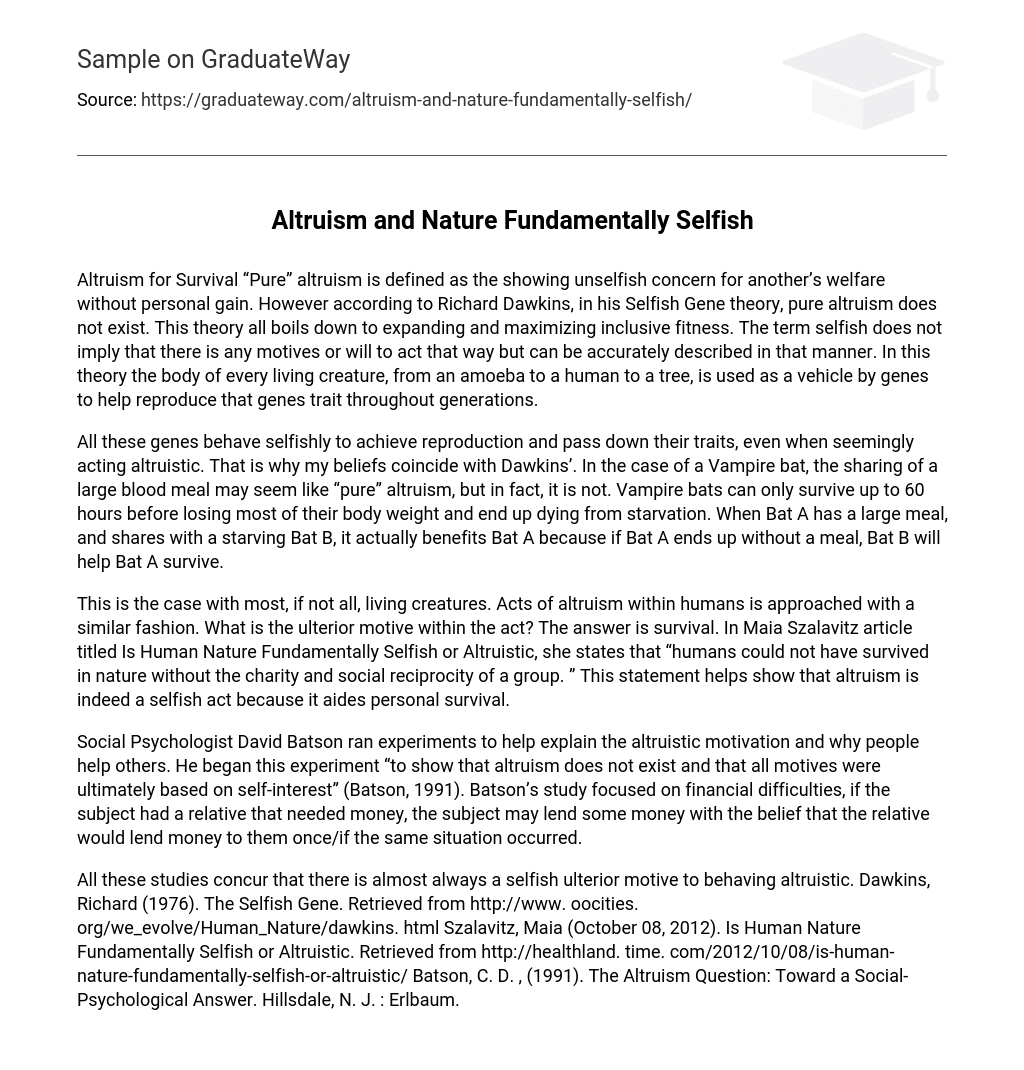Altruism for Survival “Pure” altruism is defined as the showing unselfish concern for another’s welfare without personal gain. However according to Richard Dawkins, in his Selfish Gene theory, pure altruism does not exist. This theory all boils down to expanding and maximizing inclusive fitness. The term selfish does not imply that there is any motives or will to act that way but can be accurately described in that manner. In this theory the body of every living creature, from an amoeba to a human to a tree, is used as a vehicle by genes to help reproduce that genes trait throughout generations.
All these genes behave selfishly to achieve reproduction and pass down their traits, even when seemingly acting altruistic. That is why my beliefs coincide with Dawkins’. In the case of a Vampire bat, the sharing of a large blood meal may seem like “pure” altruism, but in fact, it is not. Vampire bats can only survive up to 60 hours before losing most of their body weight and end up dying from starvation. When Bat A has a large meal, and shares with a starving Bat B, it actually benefits Bat A because if Bat A ends up without a meal, Bat B will help Bat A survive.
This is the case with most, if not all, living creatures. Acts of altruism within humans is approached with a similar fashion. What is the ulterior motive within the act? The answer is survival. In Maia Szalavitz article titled Is Human Nature Fundamentally Selfish or Altruistic, she states that “humans could not have survived in nature without the charity and social reciprocity of a group. ” This statement helps show that altruism is indeed a selfish act because it aides personal survival.
Social Psychologist David Batson ran experiments to help explain the altruistic motivation and why people help others. He began this experiment “to show that altruism does not exist and that all motives were ultimately based on self-interest” (Batson, 1991). Batson’s study focused on financial difficulties, if the subject had a relative that needed money, the subject may lend some money with the belief that the relative would lend money to them once/if the same situation occurred.
All these studies concur that there is almost always a selfish ulterior motive to behaving altruistic. Dawkins, Richard (1976). The Selfish Gene. Retrieved from http://www. oocities. org/we_evolve/Human_Nature/dawkins. html Szalavitz, Maia (October 08, 2012). Is Human Nature Fundamentally Selfish or Altruistic. Retrieved from http://healthland. time. com/2012/10/08/is-human-nature-fundamentally-selfish-or-altruistic/ Batson, C. D. , (1991). The Altruism Question: Toward a Social-Psychological Answer. Hillsdale, N. J. : Erlbaum.





